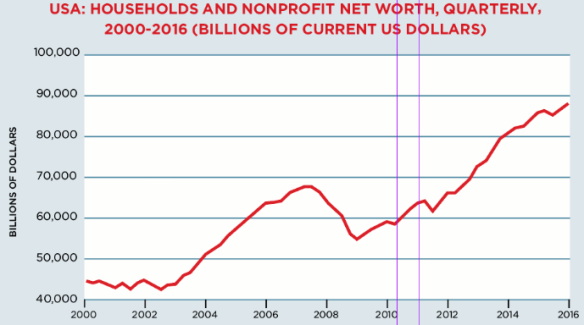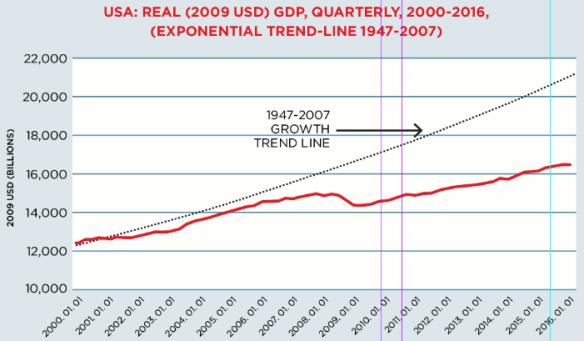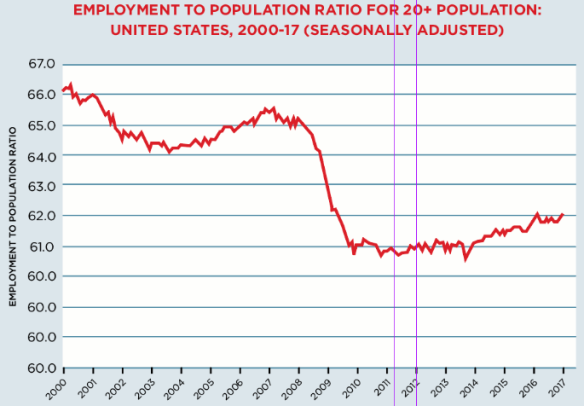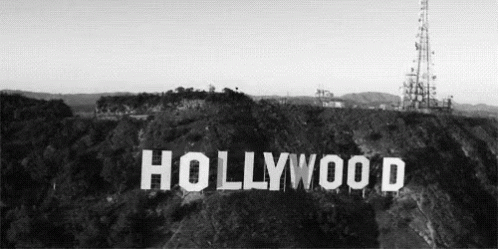Everyone is trying to figure out what Donald Trump is all about and I am no exception. My last two posts, here and here, compare his positives and negatives and what he is doing well so far and also not so well.
The American Enterprise Institute’s political economist, Nicholas Eberstadt, has an article in the current issue of Commentary, “Our Miserable 21st Century,” describing very cogently the economic and social conditions which have led to the election of Donald Trump as President of the United States. Says Mr. Eberstadt:
- The year 2000 marks a grim historical milestone for our nation. The warning lights have been flashing for 15 years and now these signals are impossible to ignore.
- First of all, the estimated net worth of American households has more than doubled between 2000 and 2016, from $44 trillion to $88 trillion (see below).

- At the same time the recovery from the crash of 2008 has been singularly slow and weak. By late 2016 per capita output was just 4% higher than in late 2007. In effect the American economy has suffered something close to a lost decade (see below).

- Then there is the employment situation. Between 2000 and 2016 the work rate for Americans aged 20 and older declined by 4% from 66% to 62%. To put this in different words: if our nation’s work rate today were back up to its start-of-the-century highs, 10 million more Americans would currently have paying jobs (see below).

- Half of all prime working-age male labor-force dropouts (totaling 7 million men) take opioid medication on a daily basis, typically paid for by Medicaid. In fact, 53% of prime-age males not in the labor force are enrolled in Medicaid.
- Of the entire un-working prime-age male Anglo population in 2013, 57% were collecting disability benefits.
- Currently 17 million men in America have a felony conviction somewhere in there past. This amounts to one of every eight adult males in the country. It is difficult for felons to find work and therefore to become productive members of society.
Concludes Mr. Eberstadt, “The abstraction of inequality doesn’t matter a lot to ordinary Americans. The reality of economic insecurity does. The Great American Escalator is broken – and it badly needs to be fixed. With the election of 2016, Americans within the bubble (of affluence) finally learned that the 21st century has gotten off to a very bad start in America. Welcome to the reality. We have a lot of work to do together to turn this around.”
Follow me on Twitter
Follow me on Facebook
Share this:





